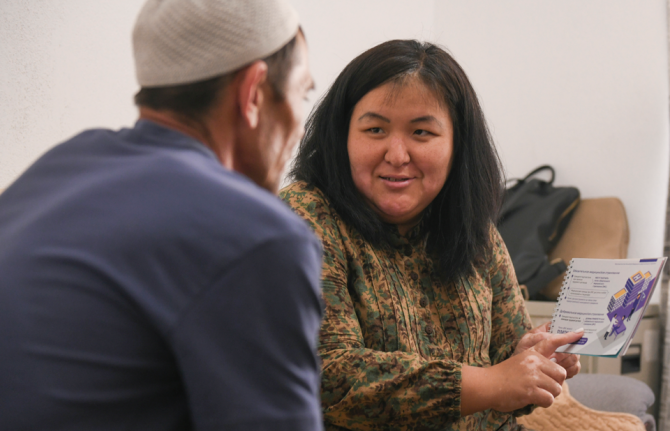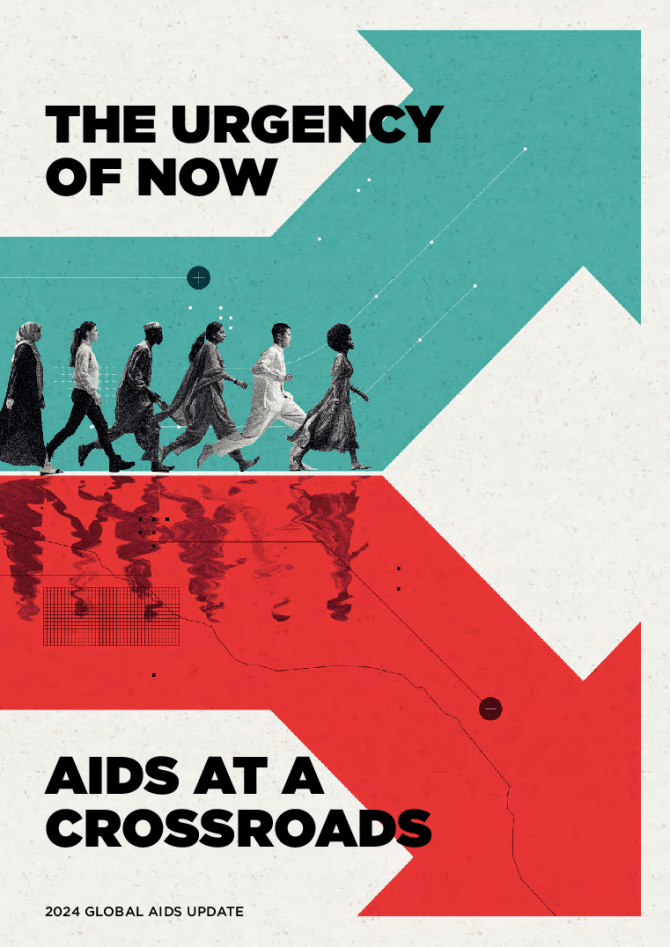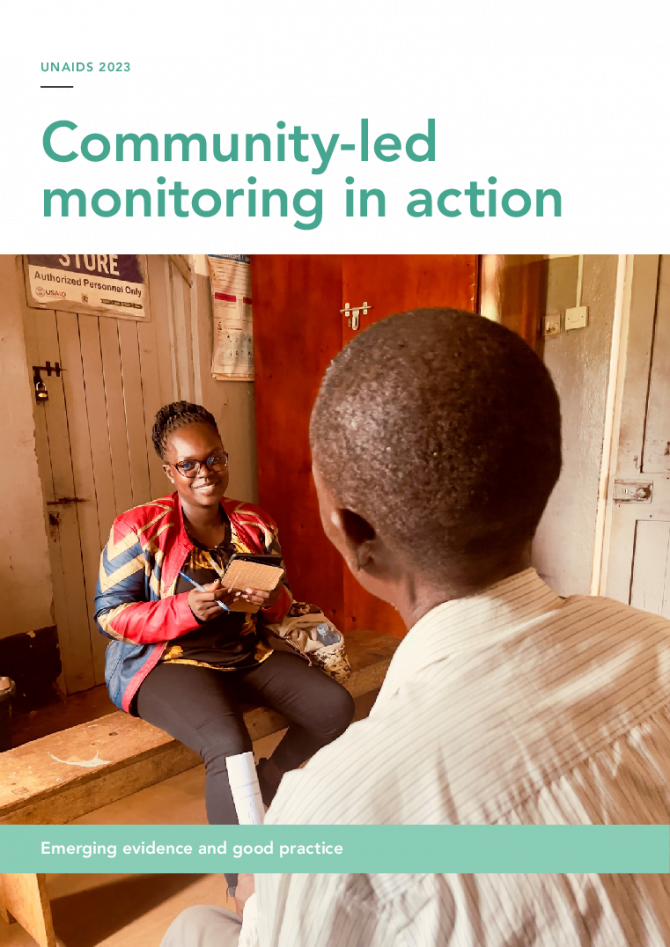
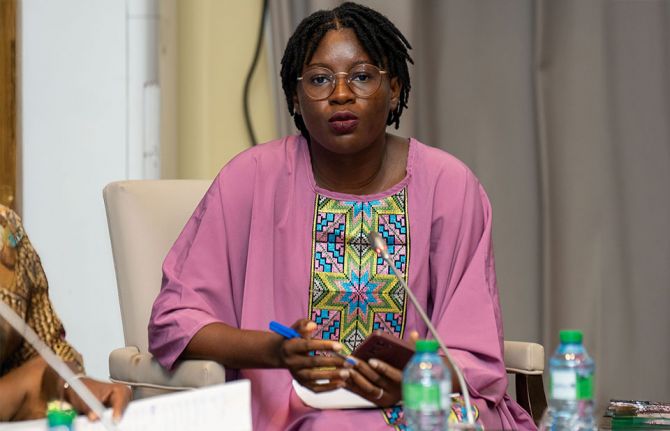
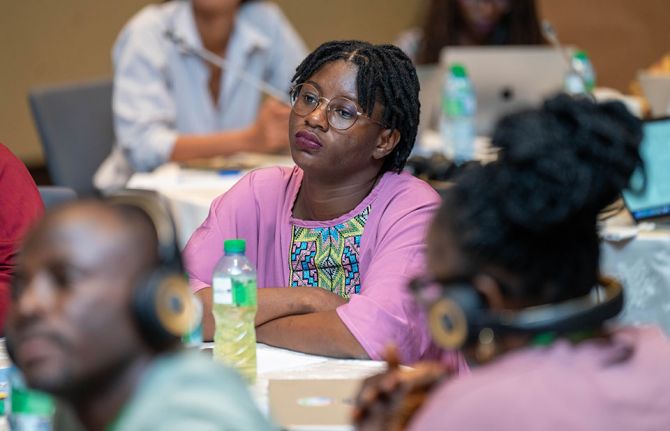
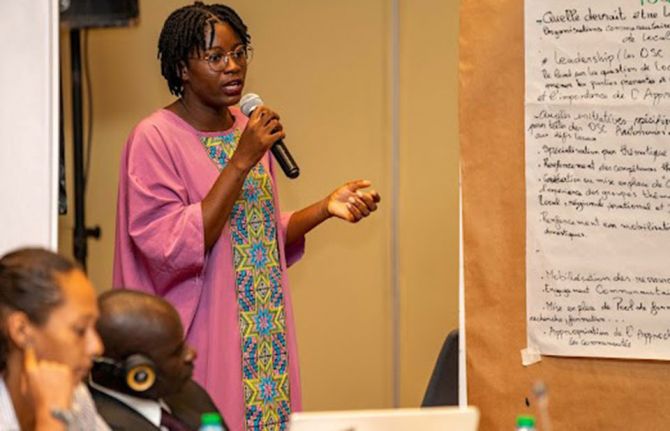
Feature Story
Empowering youth to lead Togo’s HIV response
31 October 2024
31 October 2024 31 October 2024In Togo, youth and adolescents living with HIV are stepping forward to lead the response against the AIDS epidemic. Through resilience, determination, and a collective vision, they have come together to form a new youth-led network called the Network of Positive Children, Adolescents and Youth Innovating for Renewal (REAJIR+), This grassroots initiative is dedicated to amplifying the voices of all children, adolescents and young people affected by HIV, and is a testament to the power of youth leadership in shaping their future. “We felt the need to create a space where young people living with HIV could be heard and represented,” says Sitsope Adjovi Husunukpe, Executive Director and one of the founding members of the network. “Many of us felt that our needs and concerns, although important, were not given priority in the development and implementation of policies and interventions relating to HIV prevention and care.”
The network’s creation was not without problems. In Togo, where leadership is often adult-driven, it took courage and determination to establish an organization run by and for young people. "Even though we faced difficulties, we knew we had to persist," explains Adjovi. "The environment wasn’t always supportive, but we kept believing in the vision of our network. We wanted to ensure that young people living with HIV, from all walks of life, had a space to advocate for their rights."
The need for young people to be involved in the response to HIV in Togo is clear. According to recent reports, only about 26% of young people aged 15-24 have enough knowledge about how to prevent HIV.[1] Children's performance in terms of adherence to HIV treatment is below the general average of 80.5%[2]. At the same time, 6,200 children aged 0 to 14 are living with HIV[3]. In Western and Central Africa, at least 16% of girls and 12% of boys aged 15-24 have sex before they turn 15[4]. These numbers show that more needs to be done to help young people understand HIV to protect themselves.
“Empowering young people goes beyond raising awareness; it’s about unlocking their potential to drive change. When they take ownership of their advocacy, they become catalysts for progress, shaping solutions that resonate in their communities. By equipping them with the right tools, we invest in a future led by those who understand the challenges firsthand.” says Dr Yayé Kanny Diallo, UNAIDS Country Director for Togo and Benin.
Koffi Emmanuel Hounsime, the network’s president, echoes the importance of youth-led advocacy. “At the beginning, people questioned our legitimacy. They asked, ‘Who are you representing?’ But once we formalized our network and built our credibility, we gained respect. Now, when we speak, we speak with authority on behalf of youth living with HIV across the country.”
Despite these hurdles, the network remains committed to its mission. “We are working not just for ourselves but for the future generation of young people living with HIV,” says Adjovi. "We want to ensure that we have better support, better care improving our life quality, and that we feel empowered to take decisions concerning our own well-being."
The network has already made significant strides. It has actively participated in national HIV dialogues and contributed to the development of the new Global Fund HIV grant, ensuring that the priorities of adolescents and young people are included.
For these young leaders, creating the network is about more than just advocacy. It’s about survival, empowerment, and hope. Emmanuel reflects, “We didn’t just create this network to represent young people, we created it to change lives. Every day, we’re working to make sure that no young person living with HIV feels alone.”
[1] AIDS INFO Togo Country Data
[2] Rapport REDES Togo 2023
[3] AIDS Info Togo Country Data
[4] UNESCO Education Report
Our work
Region/country

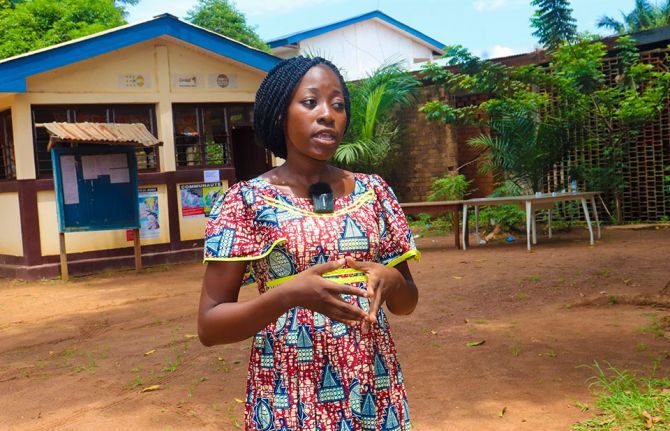
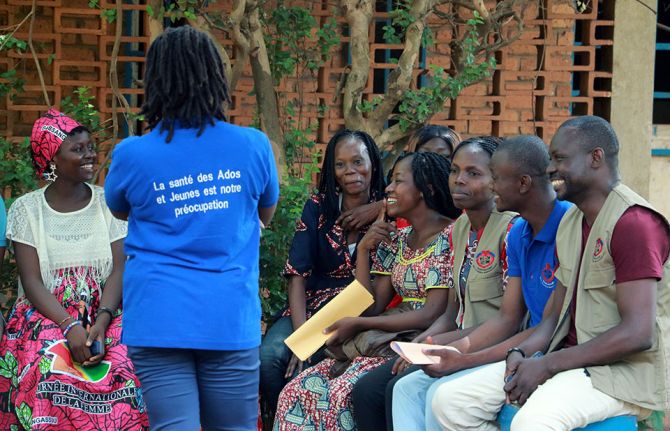
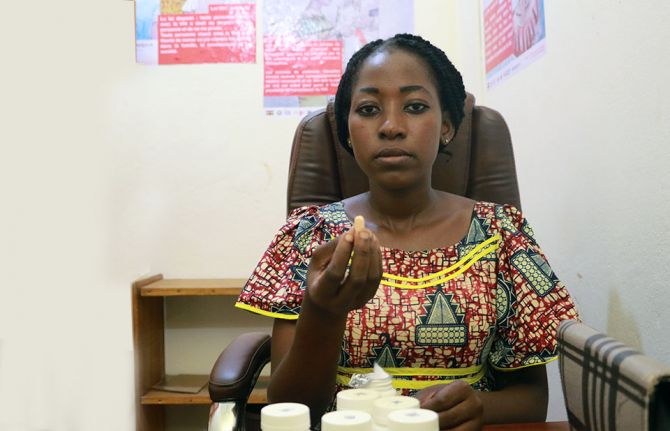
Feature Story
Bridging gaps: sex education saves lives in Central African Republic
03 September 2024
03 September 2024 03 September 2024In a modest neighborhood of Bangui, Central African Republic’s capital city, Gniwali Ndangou is rushing to work. She’s a peer educator and community health worker at a youth sexual education centre, CISJEU.
The same centre that saved her life.
I'm an orphan," she said, “I am the youngest of three sisters.” Throughout her childhood, her legal guardian told her to take pills saying it was anti-malaria and headache medicine. “I was the only one who took treatment every day and it never stopped.”
After threatening to stop taking pills when she was 17 years old, her sister finally told her the truth. She was born with HIV.
Gniwali couldn’t believe the litany of lies. Having recently been forced to quit school as her adopted family struggled to make ends meet, she once again felt abandoned.
“Many times, I tried to commit suicide… I wanted to end my life,” she said.
Her sister Astrid said she tried to pull her youngest sibling out of despair and kept hammering to her: “There are no differences between us, we are all humans.”
At her sister’s urging, Gniwali sought help at a youth center, Centre d’information et d’éducation sexuelle des jeunes (Center for Youth Sexual Education and Information) known as CISJEU. Established in 1994, CISJEU has been a beacon of hope for many young people like Gniwali. They offer community-led services ranging from HIV prevention to HIV testing to peer-supported treatment initiation and adherence.
War and extreme poverty have greatly increased premature death in Central African Republic, leaving seventy-eight percent of the population under 35 years old. Young people struggle to receive an education with less than 4 in 10 adults literate. Gender inequality and gender-based violence also make young girls particularly vulnerable to HIV infection. Out of the 10,000 yearly new HIV infections, 3000 are among 15-24 years old with more than two female infections for every one male infection.
According to a UNICEF survey, less than 20% of young people possess comprehensive knowledge about HIV prevention. The youth center uses peer educators to bridge this knowledge gap and provide youth-friendly services. "We've trained and deployed 160 peer educators (80 in schools while the others are at youth centers) across different districts of Bangui and beyond, ensuring effective outreach and health and body awareness," said Michael Guéret, a program officer at CISJEU.
Chris Fontaine, former UNAIDS Country Director, underscores the importance of peer-led initiatives, “Addressing HIV and sexual health among young people in CAR is not just a health issue but a critical component of sustainable development and peace consolidation.”
With support from UNAIDS and the Ministry of Health, CISJEU has attained the right to distribute HIV medicine, antiretroviral therapy, among the community.
For Gniwali, CISJEU became more than a sanctuary. Through training programs, she evolved from a beneficiary to a peer educator and community healthcare provider. “I received various certifications such as mobile HIV testing, and psychosocial support."
Leading discussion groups and dispensing life-saving antiretroviral medications to young people, she inspires young women to take care of their health. Her message is clear and powerful: "Being a young woman isn't easy. We must educate ourselves about this disease, fight against it, and prevent its spread in our country.”
Watch
Region/country
Related
 Impact of the pause of US foreign assistance in Côte d'Ivoire
Impact of the pause of US foreign assistance in Côte d'Ivoire

19 February 2025
Documents
2024 global AIDS report — The Urgency of Now: AIDS at a Crossroads
22 July 2024
This UNAIDS 2024 report brings together new data and case studies which demonstrate that the decisions and policy choices taken by world leaders this year will decide the fate of millions of lives and whether the world’s deadliest pandemic is overcome. Related links: Press release | Special web site | Executive summary | Fact sheet | Video playlist | Epidemiology slides | Data on HIV | Annex 2: Methods Regional profiles: Asia and the Pacific | Caribbean | Eastern Europe and Central Asia | Eastern and Southern Africa| Latin America | Middle East and North Africa | Western and Central Africa | Western and Central Europe and North America Thematic briefing notes: People living with HIV | Gay men and other men who have sex with men | Transgender people | Sex workers | People who inject drugs | People in prisons and other closed settings | Adolescent girls and young women | Other translations: German

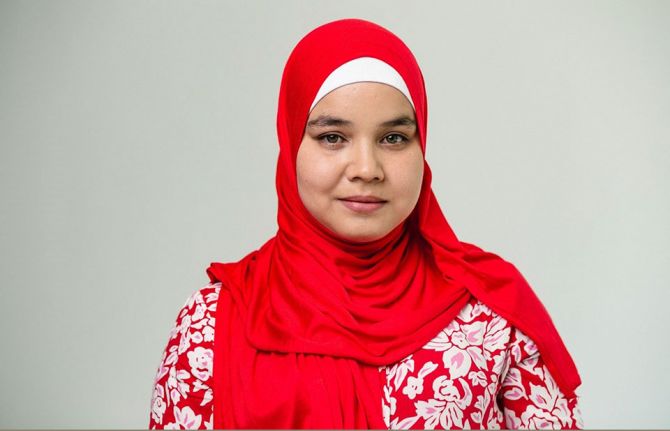
Feature Story
Meet Azima: Frontline hero of the HIV response in Uzbekistan
27 May 2024
27 May 2024 27 May 2024Azima has lived with HIV since childhood; she was abandoned by her parents and raised by her grandmother.
Today she is recognized as an inspirational community leader in the HIV response, including for the vital role she has played in tackling stigma as the first young woman in Uzbekistan to disclose her HIV-positive status.
"I am strong. I have a bright future ahead. And I will achieve my goals,” says Azima.
She has faced both positive and negative reactions since her disclosure. Throughout, Azima has remained a committed activist. She is especially thankful to her community of peer support, a group of children and young people living with HIV supported by UNICEF.
“In the end, the energy of the people who supported me was so strong that it helped me rise above other people's criticism,” she said.
As a peer educator, Azima works tirelessly to raise awareness about HIV.
Today, Azima is studying psychology at Fergana State University. This choice of future career was encouraged by her grandmother and inspired by a psychologist who worked in her support group.
Because of her HIV treatment, Azima cannot transmit HIV to her husband. Several months ago, she gave birth to an HIV-free baby girl.
She is thankful for her family. “My husband has always supported me,” says Azima.
Azima’s story exemplifies the progress made in Uzbekistan’s HIV response. Antiretroviral therapy is provided free of charge to all in need in Uzbekistan. The country is also making efforts to ensure all women living with HIV receive timely treatment, so that all babies will be born HIV-free. Coverage of pregnant women who receive antiretroviral treatment to prevent vertical transmission of HIV has been around 98% since 2016, according to the Uzbekistan Republican Center to fight AIDS.
“The rate of vertical HIV transmission in 2023 was 0.2%. We aim to reduce this figure to 0%. The Republic of Uzbekistan is on the verge of receiving an international certificate for the elimination of mother-to-child HIV transmission,” said Bahrom Igamberdiyev, Director of the Republican AIDS Center in Uzbekistan.
The country has approved a "Roadmap for Implementing Measures to Achieve the Validation of the Elimination of Mother-to-Child Transmission of HIV for 2024-2026". This roadmap will be implemented with the participation of all partners, allowing Uzbekistan to reach its goal and obtain validation for the elimination of vertical transmission of HIV. An effective HIV response is a priority for both the government and civil society in Uzbekistan.
However, some critical challenges in the HIV response in Uzbekistan, particularly concerning HIV prevention, which are deeply rooted in societal norms and systemic inequalities.
These, according to the recently released Gender Assessment Report for Uzbekistan, include limits on women's decision-making power, leaving many women dependent on male relatives for important life choices, including healthcare decisions.
Despite the Government’s commitment and legislative efforts to address gender-based violence, underreporting remains a significant issue. The prevalence of early and arranged marriages also contributes to the limited autonomy of women, depriving many of them of educational and economic opportunities and impeding access to comprehensive sexual education. Cultural norms limit open discussions on reproductive health and prevention in many social contexts including family and educational settings.
As a result, the latest survey found that only 14% of women between 15 and 49 years old have comprehensive knowledge about HIV. This reduces to 10% for young women between 15 and 25 years old. “Addressing these systemic issues requires comprehensive efforts to promote gender equality, ensure access to sexual and reproductive health and rights, and empower women economically. UNAIDS is working with partners to improve access to education and create an enabling environment for women to realize their full potential,” said Eamonn Murphy, UNAIDS Regional Director for Asia-Pacific and Eastern Europe and Central Asia.
Azima is stepping up her advocacy role, pointing out that openness and education are crucial in fighting stigma and advancing access to prevention, testing and treatment. She advises young women to disclose their HIV status to partners early in relationships and emphasizes the importance of adherence to treatment and of mutual support within families.
Azima will continue breaking stereotypes, promoting awareness, and embracing her journey with courage and determination. Azima exemplifies the learning that HIV responses succeed when we let communities lead.
Related link
Region/country
Related
 Women, HIV, and war: a triple burden
Women, HIV, and war: a triple burden

12 September 2025
 Displacement and HIV: doubly vulnerable in Ukraine
Displacement and HIV: doubly vulnerable in Ukraine

11 August 2025

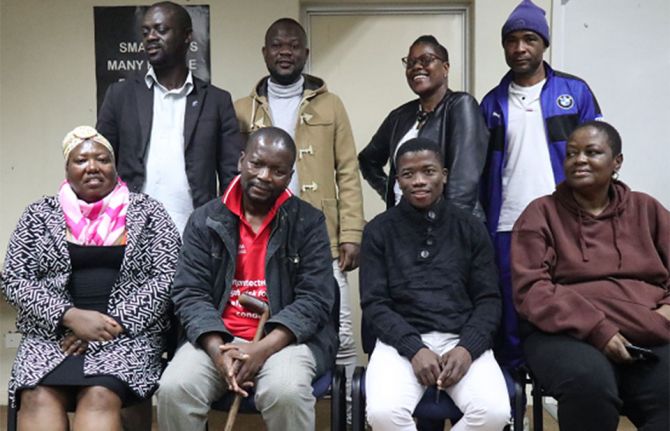
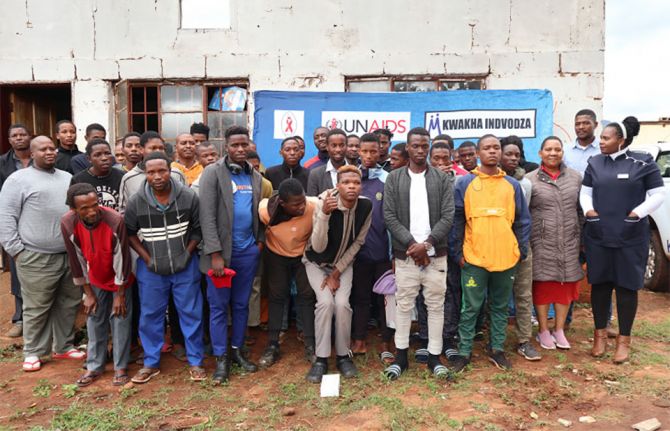
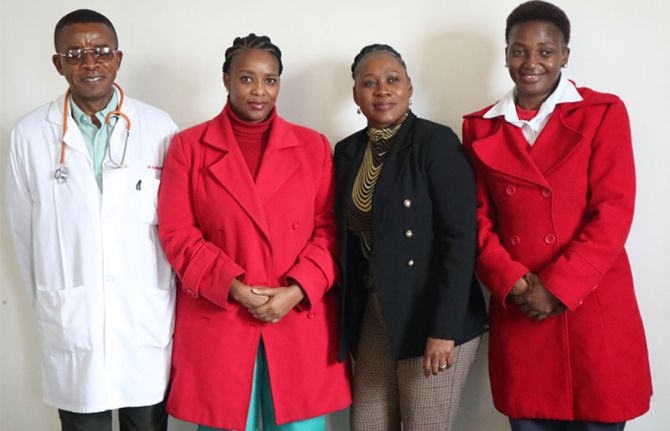
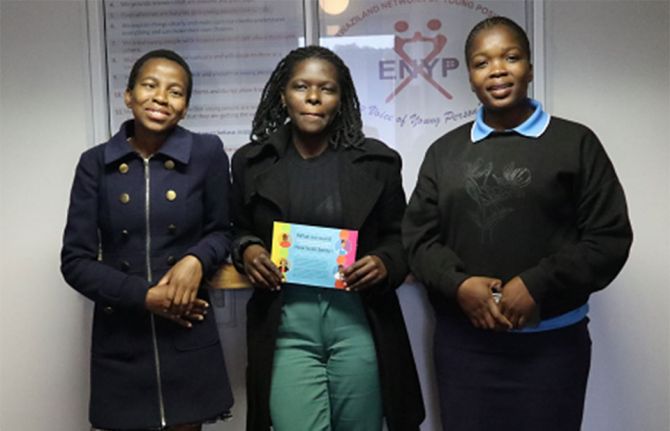
Feature Story
How communities led in the HIV response, saving lives in Eswatini at the peak of a crippling AIDS epidemic
25 April 2024
25 April 2024 25 April 2024This story was first published by News24.com
Eswatini is one of the countries which has been most affected by HIV. At the peak of the epidemic in 2015, almost one out of three people were living with HIV. In 1995, when there was no antiretroviral treatment for people living with HIV, 73 000 people were living with HIV. 2400 people died of AIDS that year. Worried about the rising number of infections and deaths, communities of people living with HIV mobilized to press that antiretroviral treatment be made available for people living with HIV.
One of the key campaigners for access was Hannie Dlamini. Dlamini is now 50 years old and has been living with HIV for 32 years, after finding out about his HIV positive status at the age of 18. He was one of the first people in Eswatini to publicly declare his positive HIV status in 1995 at a time when the stigma and misinformation around HIV was rife.
Dlamini rallied together other people living with HIV as well as non-governmental organizations working to end AIDS in Eswatini, to ensure that everyone living with HIV and in need of treatment had access to it. They formed a community-led organization called Swaziland AIDS Support Organization (SASO) as a support group for people living with HIV. SASO also provided healthy living information for people living with HIV.
“When we asked the government [in 2002] for ARVs in Eswatini we did a pilot project with NECHA [National Emergency Response Council on HIV/AIDS], to see if people would use the drugs.” Dlamini says the response was overwhelming, with many people keen to start the lifesaving treatment. “We initially planned to enrol 200 people on treatment but the demand was 630.” said Dlamini.
Today, Eswatini is one of the countries which has achieved the ambitious 95-95-95 targets (95% of people living with HIV who know their HIV status, 95% of people who know that they are living with HIV are on life-saving antiretroviral treatment, and 95% of people who are on treatment are virally suppressed). This achievement has put the country a step closer to ending AIDS as a public health threat, thanks to the work of community-led organizations, authorities and global partners like UNAIDS, the United States President's Emergency Plan For AIDS Relief (PEPFAR) and the Global Fund to fight AIDS, TB and Malaria who are working with the government and local communities to end AIDS.
Eswatini’s HIV response strategy includes ongoing nationwide testing and treatment campaigns, use of self-testing kits to encourage more people to take up testing at the comfort of their homes, antiretroviral treatment, male circumcision and pre-exposure prophylaxis (medicine to prevent HIV) and other prevention measures. Community organizations such as Kwakha Indvodza are also key in encouraging men to take full responsibility for their wellbeing and reducing toxic masculinity and gender-based violence which are some of the drivers of HIV.
The driving role of communities in Eswatini to end AIDS is acknowledged by the health authorities. According to Dr. Michel Morisho, HIV management specialist at Mbabane Government Hospital, the government “could not have achieved the 95-95-95 without communities.”
Dr. Morisho says as part of the country’s strategy to end AIDS, HIV testing and treatment are part of disease management for every patient who presents at health facilities for any illness. “When people come to the hospital for whatever, or check up, we offer an HIV test to allow them to know their HIV status,” he said. Dr. Morisho added that treatment is important to bring down viral load and is helping people living with HIV to stay healthy. Eswatini is striving to achieve 100-100-100 [in the number of people who know their HIV status, are on treatment and are virally suppressed].” People who are virally suppressed cannot transmit HIV, thus helping in HIV prevention efforts.
Young women living with HIV have also stepped up to fight the spread of HIV in the country, volunteering their time as peer educators to educate young people about HIV and supporting people newly infected to stay on treatment to live healthily and long lives. Ntsiki Shabangu is a 28-year-old young woman living with HIV. She was diagnosed with HIV in 2015, at the age of 19. She opened up about her status in 2017 and is now working with the Eswatini Network of Young Positives, a local non-governmental organisation working to end AIDS among young people providing counselling and HIV awareness training . Ntsiki believes that: “When you share your story, you bring hope to young people.”
While Eswatini is on the path to end AIDS, the country is facing other health burdens associated with aging, including non-communicable diseases such as diabetes and cancer. People living with HIV are not often more affected by these illnesses. Some people living with HIV in Eswatini have developed these comorbidities, which presents the need for the strengthening of the healthcare system to provide easily accessible holistic disease management and treatment along with HIV services to improve the quality of life for people living with HIV. As Thembi Nkambule, a woman who has been on HIV treatment for more than 20 years said: “Most of us are sick. Most of us are presenting with kidney issues. We are presenting with hypertension; we are presenting with sugar diabetes. We have a lot of issues.”
To protect the gains that have been made against HIV in Eswatini, the government should invest more resources in building a resilient healthcare infrastructure to strengthen the system to better meet the health needs of people living with HIV and to prepare for future pandemics. Community-led organisations should also be placed at the centre of HIV response and supported, both financially and politically, to reach more people who need HIV services to end the epidemic by 2030 as a public health threat.
Region/country

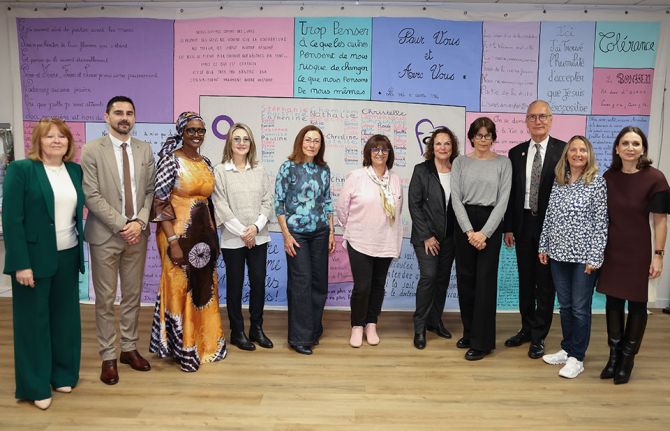
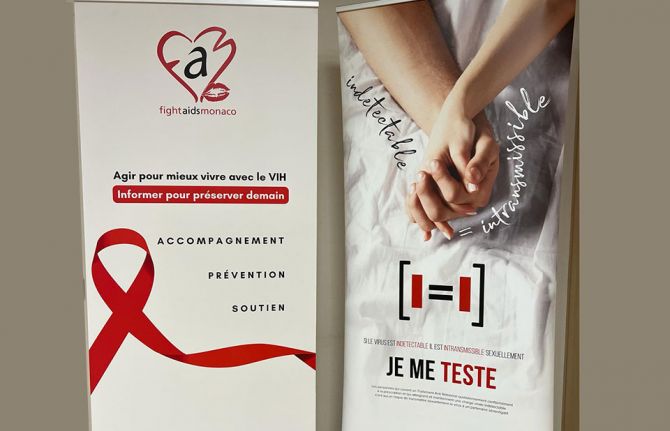
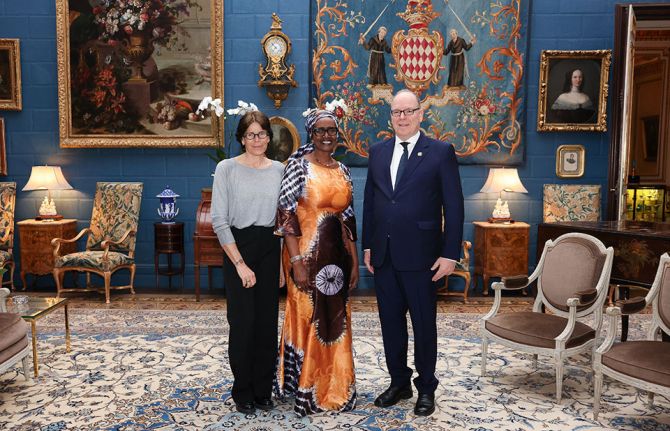
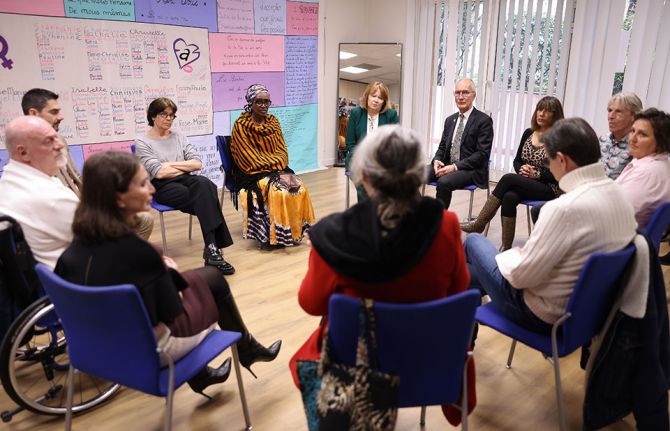
Press Statement
Monaco Principality renews its collaboration with UNAIDS
11 April 2024 11 April 2024GENEVA/MONACO, 11 April 2024— Winnie Byanyima, the Executive Director of UNAIDS—the organization leading the global fight against AIDS—met with HSH Prince Albert II of Monaco and HSH Princess Stéphanie of Monaco and government officials to strengthen Monaco’s collaboration with UNAIDS.
“Monaco is a long-standing and valued partner of UNAIDS. We continue to work together on our broad programme and also in key countries,” said Ms Byanyima. “What we particularly value is how Monaco shows such innovation in fighting HIV, and we learn from each other.”
During a visit to the Fight AIDS Monaco Association, Ms Byanyima and HSH Princess Stéphanie and Ms Byanyima met with volunteers, staff and members of the Association. Fight AIDS Monaco, founded in 2004 by Princess Stéphanie, supports people living with and affected by HIV in Monaco and the neighbouring area. They also fund projects in Madagascar, Burundi, South Africa, Mauritius, and more exceptionally Ukraine, Lebanon and Morocco.
“My heartfelt congratulations to the Fight AIDS Monaco team, celebrating your 20th year – an important milestone- and one that shows your sustained commitment to ending AIDS,” said Ms Byanyima. “It is organizations like yours that make a difference for people’s overall well-being: a safe space to share, kindness and compassion when it is most needed.”
As they gathered around an AIDS memorial quilt, Princess Stéphanie said, “We are a small country, but we can achieve great things.” She then added, “Our foundation is a place where everyone is treated with dignity and without judgement. Fight AIDS Monaco is about giving life.”
Ms Byanyima also thanked Princess Stéphanie for her unwavering engagement as a UNAIDS Goodwill Ambassador and expressed her appreciation for the Princess’s work to address HIV-related stigma and discrimination.
Despite huge progress in the HIV response, globally AIDS still claimed a life every minute in 2022. Monaco’s Minister of Social Affairs and Health, Christophe Robino, stressed that his government’s low cases of new HIV infections was a victory but one not to be taken for granted.
“This is a cause that we need to tackle daily and one day we will be able to end AIDS but we must keep talking about it while it still exists,” Mr Robino said.
Since 1988, Monaco has been implementing an integrated policy on ending HIV as a public health threat. The policy has resulted in free, anonymous HIV screening centres as well as prevention and testing campaigns in schools and businesses.
Earlier during her visit, Ms Byanyima had a working meeting with representatives from the Monegasque government and Fight AIDS Monaco.
Isabelle Berro Amedei, Minister of External Relations and Cooperation said, “Health is one of Monaco’s priorities and that includes the fight against HIV in partner countries. We lead cooperation efforts to support countries where HIV prevalence is high like South Africa, Madagascar and Mozambique.”
Monaco signed a framework agreement with UNAIDS in 2007 and has provided support for UNAIDS work in Haiti (2010-2013), Burundi (2014-2016) and South Africa since 2017. The government of Monaco, Fight AIDS Monaco and UNAIDS vowed to continue their close collaboration on ending AIDS and reiterated their commitment to the Global AIDS Strategy 2021-2026 focusing on ending inequalities to end AIDS.
UNAIDS
The Joint United Nations Programme on HIV/AIDS (UNAIDS) leads and inspires the world to achieve its shared vision of zero new HIV infections, zero discrimination and zero AIDS-related deaths. UNAIDS unites the efforts of 11 UN organizations—UNHCR, UNICEF, WFP, UNDP, UNFPA, UNODC, UN Women, ILO, UNESCO, WHO and the World Bank—and works closely with global and national partners towards ending the AIDS epidemic by 2030 as part of the Sustainable Development Goals. Learn more at unaids.org and connect with us on Facebook, Twitter, Instagram and YouTube.
FIGHT AIDS MONACO
Founded in 2004 by Princess Stéphanie of Monaco, Fight AIDS Monaco is a non-profit organization that helps people living with HIV. It also raises awareness about HIV prevention in schools and supports access to treatment and services in countries like Madagascar, Burundi, Mauritius and Ukraine.
Contact
UNAIDS GenevaCharlotte Sector
tel. +41 79 500 8617
sectorc@unaids.org
Fight AIDS Monaco
Elodie Perisi
tel. +377 97 70 67 97
com@fightaidsmonaco.com

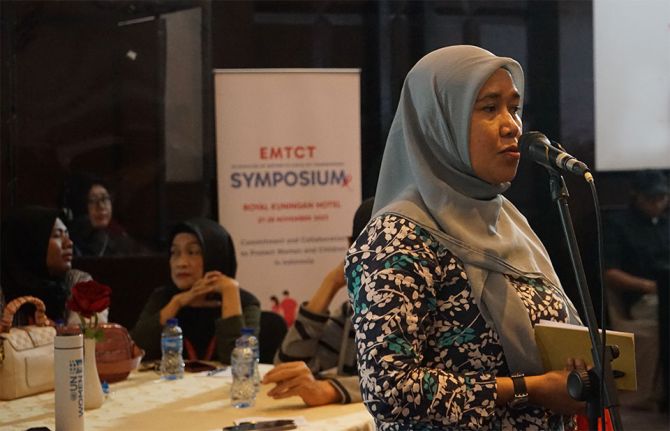
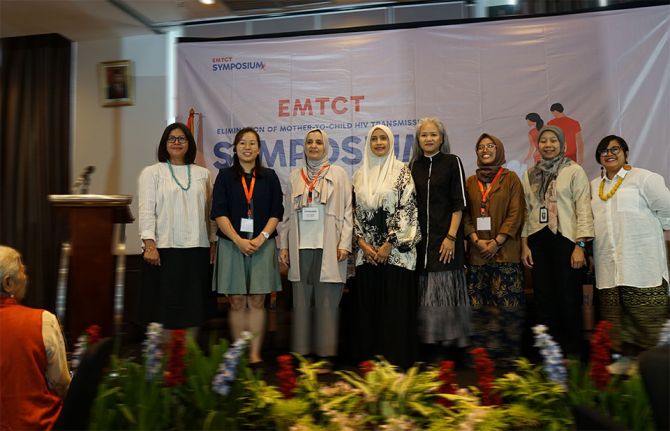
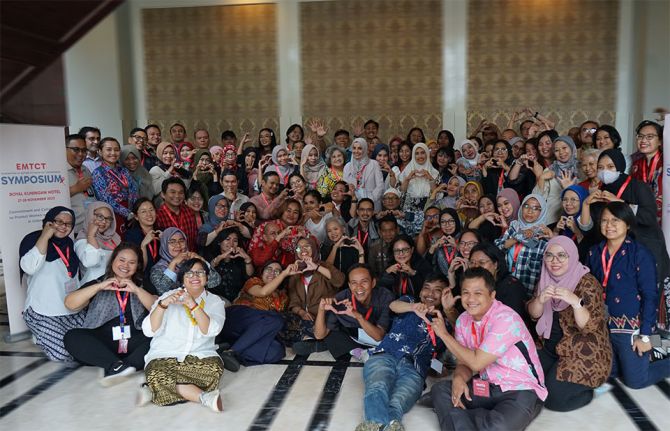
Feature Story
Community leadership driving progress to eliminate mother-to-child HIV transmission in Indonesia
07 March 2024
07 March 2024 07 March 2024Ibu Mawar (not her real name) learned she was living with HIV after receiving a test during an antenatal care visit.
“I was surprised, of course, when they told me. But I didn’t really doubt or deny the result,” she remembered from the Sorong City Health Office in West Papua. She immediately started treatment to prevent transmission to her son. “Even though I’m positive,” she said, “our child is not.”
In principle, since 2009 every pregnant woman receiving antenatal care in Indonesia should receive an HIV test. And every woman found to be living with HIV should receive medicines to prevent transmission to their babies just as Ms Mawar did.
But this isn’t yet the reality.
In 2022 more than one-third (37%) of all pregnant women in Indonesia did not get screened for HIV and just 18% of mothers living with HIV had access to antiretroviral therapy. There were an estimated 2800 new HIV infections among children that year.
But now stakeholders in Indonesia are mobilising. Not only will they scale-up prevention of mother-to-child HIV transmission services, but they will work toward eliminating vertical HIV transmission while assuring the health and wellbeing of women and children living with HIV. At the centre of this approach is the engagement of women, who comprise roughly one-third of the adult population living with HIV.
In June 2023 Indonesia established the National Alliance to End AIDS in Children. This partnership between government, civil society and international organizations seeks to provide access to health services and support for women and children living with HIV. It has committed to three main priorities. The first is advocacy for the needs of adolescent girls and children living with HIV. Second is promotion and dissemination of information on Prevention of Mother-to-Child Transmission (PMTCT), Early Infant Diagnosis, treatment literacy and comprehensive sexual education. And third is the empowerment of communities regarding issues pertaining to children living with HIV.
The Alliance’s first major initiative was an Elimination of Mother-to-child Transmission symposium—the first ever in Indonesia. Partners have embraced the World Health Organization (WHO) triple target of eliminating mother-to-child transmission of HIV, syphilis and hepatitis B by 2030. A series of sessions were delivered in-person and online. A total of 115 participants from the government, communities, academia, healthcare and media joined the EMTCT Symposium in Jakarta.
Dr. Laila Mahmudah, Head of the Neo Maternal Division at the Ministry of Health, underlined the importance of accelerating EMTCT efforts across the range of issues. She noted that currently 66% of pregnant women received hepatitis B early detection services while just 25% of pregnant women are tested for syphilis.
Multisectoral stakeholders and participants discussed strategies with participants from Malaysia and Thailand, which have both received EMTCT validation for HIV. Dr Anita Suleiman, Director of Disease Control of the Ministry of Health of Malaysia, pointed to the importance of effective leadership and health system governance for country-wide implementation.
“One of the lessons from countries that achieved EMTCT is that it is possible to end AIDS and vertical transmissions, especially in low-prevalence regions like Indonesia, through robust governance and good-quality performance. Indonesia can also achieve EMTCT by 2030, and I hope this symposium leverages the coordination efforts towards the elimination of HIV, syphilis and hepatitis B,” said Dr Shafflq Essajee, Senior Advisor, HIV, UNICEF New York.
However, it was emphasised that political commitment must be bolstered by community-led strategies to reach and retain mothers living with HIV. Community mobilization and community health workers are critical approaches. Ikatan Perempuan Positif Indonesia (IPPI), the national network of women living with HIV, also endorsed the Thai approach of providing free formula for mothers living with HIV in low-resource districts.
Ayu Oktariani, IPPI National Coordinator and a member of the National Alliance to End AIDS in Children reiterated her organization’s commitment to implementing the community-led strategies in support of EMTCT in the coming years.
“This Symposium means more than words I can explain,” said Ayu Raka from the Akar Cinta Kasih Foundation, a community organisation in Bali. “When I return to Bali, I will advocate for EMTCT with local multisectoral stakeholders and communities in my region. I am confident we can make a healthier society and improve health for all mothers and babies.”
UNAIDS Country Director for Indonesia, Krittayawan Boonto, promised the continuous backing of UNAIDS.
“We will continue to support not only mothers, but also fathers, in protecting babies from new HIV infections. I wish for Indonesia to become the fifth country in Asia Pacific to achieve EMTCT. But we can only do it with the leadership of communities,” she ended.
Region/country

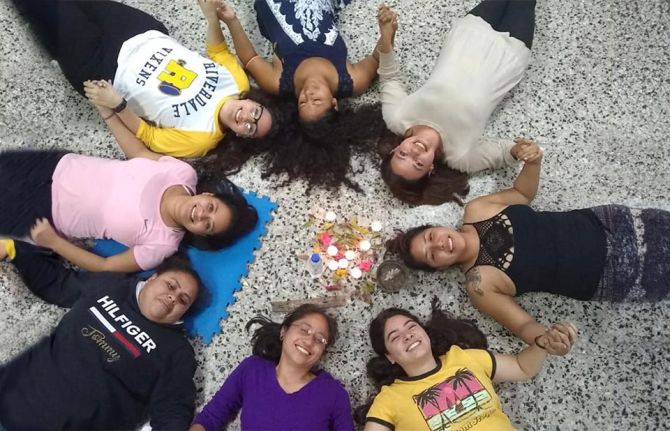
Feature Story
Responding to gender-based violence through sorority and information
15 December 2023
15 December 2023 15 December 2023In the quiet corner of a community center in Guatemala City, 29-year-old Emma - fictitious name - sits among other women she does not know. In the faces and gestures of each of them, you can see that they all carry the weight of violence and injustice on their shoulders.
The first subtle rays of sunlight gradually fill the room; calm and comfort invite Emma and the others to feel more relaxed in their hearts and souls. With tired eyes, small hands, and a heart scarred by violence, she looks around, absorbs the energy of the place, and takes a deep breath as she awaits the start of a therapy session and an informative talk about HIV.
As the therapy session began, Emma shyly and cautiously shared her experiences with Wendi Polanco, who, since 2019, has become a helping hand for many women battered by gender-based violence. Through Latiendo Juntas, the organization she leads in Guatemala, Wendi clearly proves that sisterhood works and is transformative.
With support from UNAIDS, Latiendo Juntas coordinates a project to improve access to comprehensive health services, including sexually transmitted infections (STI) and HIV testing and care for women survivors of violence. They also contribute to their resilience and empowerment by raising awareness of human rights, including their sexual and reproductive rights, through group therapy and HIV information talks, which provide facts and a platform for open dialogue, fostering a non-judgmental environment.
"The room becomes a sanctuary where the pain of women like Emma and so many others is recognized," says Wendi. "The community center is a refuge for them, and a network of support among the women is woven with the sun's warmth. I feel relieved when I see how the weight on their shoulders begins to lessen."
Throughout these therapy sessions, Emma and other women discover comfort and empowerment. The therapeutic journeys offered at Latiendo Juntas become a catalyst for their resilience, liberation, and self-care.
The link between HIV and violence against women is a widespread problem, as gender-based violence increases women's vulnerability to HIV infection. Women who experience violence may have difficulty negotiating safe sexual practices, including the use of condoms, which increases their risk of contracting HIV. In addition, fear of violence may deter women from seeking HIV testing, treatment, and support, perpetuating the cycle of violence and silence and limiting their access to critical and essential healthcare resources.
Violence against women in Guatemala is endemic and can be described as a shadow pandemic. The country has one of the world's highest rates of femicide: the intentional murder of women because they are women.
"Addressing the intersection of HIV and violence against women requires comprehensive efforts that include education, empowerment, and dismantling gender-based power imbalances," says Irene Izquieta, UNAIDS Advisor on Rights and Gender for Guatemala, Honduras, and Nicaragua.
Let communities lead
Region/country
Related
Documents
Community-led monitoring in action: Emerging evidence and good practice
01 November 2023
Documents
Summary — Let Communities Lead — UNAIDS World AIDS Day report 2023
28 November 2023
This report is not only a celebration of the critical role of communities. It is a call to action to decision-makers to fully support the life-saving work of communities and to clear away the barriers that stand in their way. Press release | Full report | Fact sheet | World AIDS Day 2023




